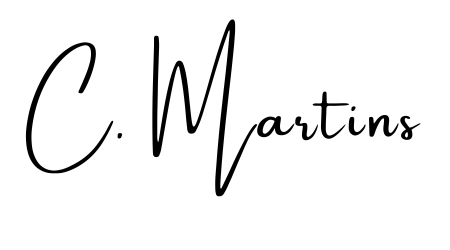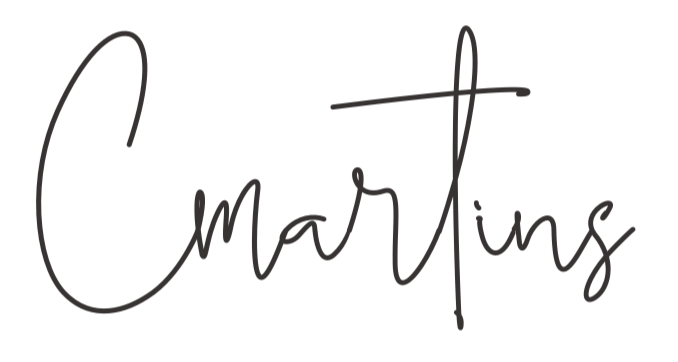Writing is an outlet
one of a kind
my favorite way
for my mind to unwind
— c. martins
They say we think about 10,000 thoughts a day, and most of them are repetitive. These fleeting thoughts often last only a few seconds before they quickly lead to the next. Without a way to process them, it’s easy to feel overwhelmed by racing thoughts.
That’s where journaling for mental clarity and emotional well-being comes in. Therapists, researchers, and anyone familiar with self-development know that the first step to making meaningful changes is identifying the problem. Journaling creates a space to slow down and notice the patterns behind our thoughts, instead of letting them run on autopilot.
One of the most powerful benefits of journaling is the gift of perspective. If you’ve ever kept a diary while growing up, you might remember flipping back through old entries and realizing how problems that once seemed significant often weren’t worthy of our attention- and how worrying about them didn’t change the outcome. By recording your thoughts, you create a track record that can help you see what truly matters, thereby providing emotional balance and helping reframe challenges with a lighter, healthier mindset.
In this article, I’ll share both personal insights and scientific benefits of journaling, including evidence-based ways it can improve your emotional resilience, mental health, and creativity.
1. My First Experience with Journaling
I only recently began to journal. In fact, I used to question whether it had any real value.
However, something shifted when I picked up a self-development book that prompted me to answer a few simple questions. It was then that I realized journaling helped me slow down, process emotions, and notice specific thought patterns.
2. What Is Journaling? A Quick Overview
Journaling can be a tool for introspection and self-inquiry. Specifically, reflective journaling offers a convenient means to explore thoughts, emotions, and beliefs.
Types of Journaling:
- Stream of consciousness journaling – Writing freely to uncover hidden thoughts.
- Gratitude journaling – Listing what you’re grateful for to shift focus toward positivity.
- Prompted journaling – Responding to structured self-reflection questions.
- Dream journaling – Recording dreams for self-awareness through symbolic interpretation.
- Cognitive and emotional journaling – Exploring thoughts and emotions associated with past experiences.
3. The Benefits of Journaling: A Psychology-Informed Perspective
Based on my background in psychology, I understand the value that journaling can have as an accessible tool for psychological growth. When practiced consistently, it can offer the following benefits to anyone on a path of self-development.
13 Core Benefits of Journaling
- Greater awareness of thought patterns – Similar to meditation, journaling creates space to notice recurring thoughts.
- Emotional intelligence – Helps identify emotions and improve emotional regulation.
- Emotional processing – Supports integration of difficult experiences and enhances understanding of emotional triggers.
- Greater mental clarity – Reduces cognitive clutter by exploring meaningful questions through writing.
- Boosts motivation – Reinforces progress by highlighting personal achievements over time.
- Brainstorming and idea generation – Strengthens the mind’s creative connections.
- Increased attention – Writing down limiting beliefs facilitates replacing these with beliefs that can lead to a more fulfilling life.
- Improved memory – Written information is easier to recall and organize.
- Peace of mind – Writing can help resolve lingering issues and release mental tension.
- New perspectives – Offers a means to cultivate a more balanced perspective on emotionally-charged events.
- Better sleep – Nighttime journaling helps process thoughts and reduce rumination.
- Mental and physical health – Mind clarity contributes to better self-care routines.
- Healthier relationships – When we engage in self-care routines like journaling, we’re more likely to cultivate better relationships with others.
4. Scientific Research Supporting Journaling
Based on my recent review of the literature, journaling is associated with enhanced mental well-being, learning, and professional development.
Evidence-Based Benefits:
- Mental health & self-efficacy: A 2022 meta-analysis found journaling effective in managing mental illness with minimal side effects (Sohal M et al., 2022).
- Trauma healing: Journaling helped patients with PTSD identify and manage unconscious fears through emotional processing (Cook JM et al., 2018).
- Body positivity: Gratitude journaling reduced body shame and improved appreciation, especially in higher-weight college women (Webb JB et al., 2022).
- Critical thinking: Reflective journaling enhanced critical thinking in nursing and healthcare students (Padden-Denmead ML et al., 2016; Zori S 2016).
- Self-reflection in healthcare: Helped students process clinical experiences and improve professional skills (Hwang B et al., 2018).
- Improved empathy: Reflective writing increased empathy in nursing students and helped them better understand patient care (Outlaw K & Rushing DS, 2018).
- Quality of life: Positive affect journaling improved emotional resilience in patients with anxiety (Smyth JM et al., 2018).
These studies provide evidence of the many ways that journaling can be beneficial, including emotional regulation, improved mindset, and greater self-awareness.
5. Open Questions and Final Reflections
Based on the literature, there’s no consensus on the “best” journaling technique. Ultimately, the best technique is the one that resonates with you.
Questions to consider:
- First, consider whether you have a specific goal in mind. For example, if you’re interested in identifying limiting beliefs, you may benefit from prompts, or answering specific questions, to identify these beliefs. If you don’t have a goal in mind, you may want to consider which type of journaling you would enjoy most. For example, if it’s your first time, you may simply want to write down your free-flowing thoughts.
- How can journaling complement your creative, emotional, or professional goals?
6. Why This Practice Matters
Journaling is, at its core, an act of self-care. A private space for processing, planning, and healing.
And for creatives, it can be a bridge between reflection and expression.
If you’re curious about your own thoughts, are seeking personal growth, or simply want a deeper connection with yourself, journaling is a great place to start.
Regardless of the modality, journaling can provide some much-needed perspective. By seeing your thoughts on paper, you won’t lose sight of the forest for the trees.
In other words, you may realize how challenges that once kept you awake at night were simply opportunities to contemplate a new perspective. This reminder helps us approach daily life with a more care-free attitude, reinforcing why journaling is such a powerful act of self-care.
References
- Sohal M, Singh P, Dhillon BS, Gill HS. Efficacy of journaling in the management of mental illness: a systematic review and meta-analysis. Fam Med Community Health. 2022 Mar;10(1):e001154.
- Cook JM, Simiola V, McCarthy E, Ellis A, Wiltsey Stirman S. Use of Reflective Journaling to Understand Decision Making Regarding Two Evidence-Based Psychotherapies for PTSD: Practice Implications. Pract Innov (Wash D C). 2018 Sep;3(3):153-167.
- Webb JB, Padro MP, Thomas EV, Davies AE, Etzel L, Rogers CB, Heredia NI. Yoga at Every Size: A Preliminary Evaluation of a Brief Online Size-Inclusive Yoga and Body Gratitude Journaling Intervention to Enhance Positive Embodiment in Higher Weight College Women. Front Glob Womens Health. 2022 May 26;3:852854.
- Padden-Denmead ML, Scaffidi RM, Kerley RM, Farside AL. Simulation With Debriefing and Guided Reflective Journaling to Stimulate Critical Thinking in Prelicensure Baccalaureate Degree Nursing Students. J Nurs Educ. 2016 Nov 1;55(11):645-650.
- Zori S. Teaching Critical Thinking Using Reflective Journaling in a Nursing Fellowship Program. J Contin Educ Nurs. 2016 Jul 1;47(7):321-9.
- Hwang B, Choi H, Kim S, Kim S, Ko H, Kim J. Facilitating student learning with critical reflective journaling in psychiatric mental health nursing clinical education: A qualitative study. Nurse Educ Today. 2018 Oct;69:159-164.
- Outlaw K, Rushing DS. Increasing Empathy in Mental Health Nursing Using Simulation and Reflective Journaling. J Nurs Educ. 2018 Dec 1;57(12):766.
- Smyth JM, Johnson JA, et al. (2018). Positive affect journaling and anxiety symptoms. JMIR Ment Health. 5(4):e11290.
📚 Related Reads
Explore poetry collections inspired by reflection and lived experience by reading my books — available as instant digital downloads.
The verse at the beginning of this post also appears on one of my poetry T-shirts. It can be purchased in my Shopify store.


